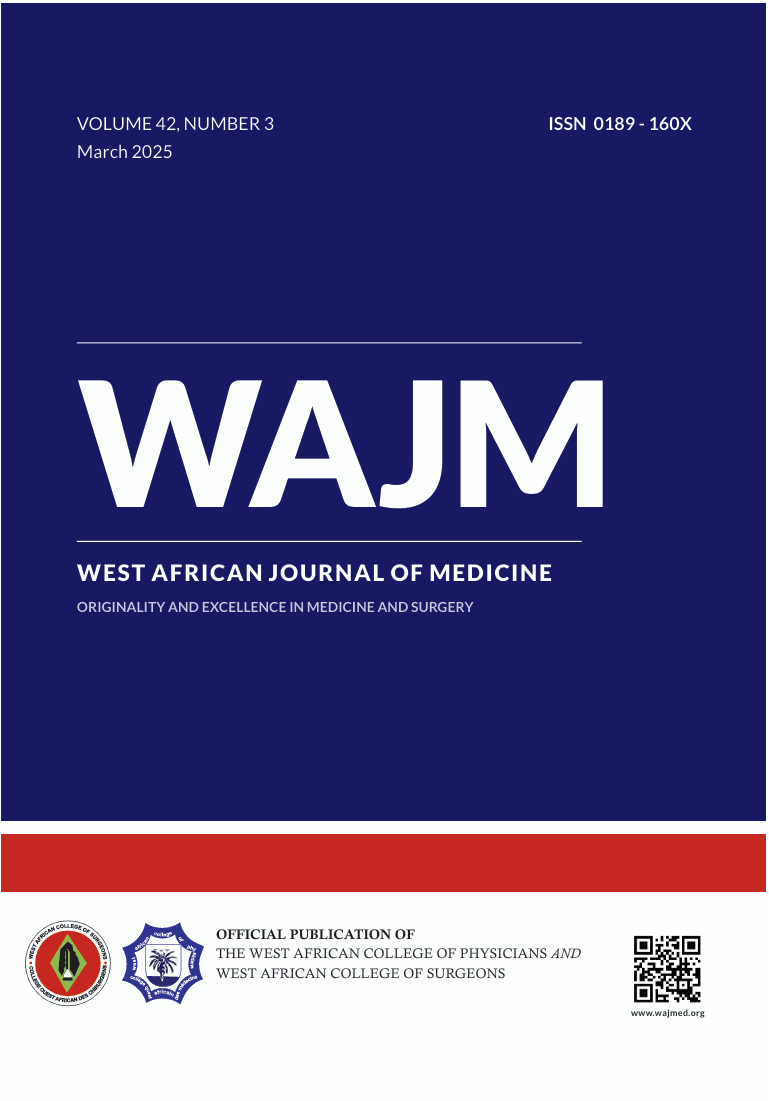ORIGINAL: Barriers and Enablers of Antihypertensive Adherence Among a Nigerian Adult Hypertensive Population Seeking Care in Public Secondary Health Facilities in Delta State, Nigeria: A Mixed Methods Study
West Afr J Med. March 2025; 42 (3): 240-247 PMID: 40845429
Keywords:
Adherence, Anti-hypertensive, Barriers, Enablers, HypertensionAbstract
Background: Poor adherence to prescribed anti-hypertensive treatments remains a significant public health challenge in Nigeria. This study assessed the barriers and enablers of anti-hypertensive medication adherence among hypertensives seeking care in public secondary health facilities in Delta State, Nigeria.
Methods: A mixed quantitative and qualitative method was employed to assess the barriers and enablers of anti-hypertensive medication adherence among a random multistage sample of 451 adult hypertensives. Data were collected using an interviewer-administered semi-structured questionnaire and a focus group discussion guide. Descriptive and inferential analyses of the data collected were carried out using the IBM SPSS version 26 software.
Results: The mean age of the study participants was 53.5 (SD = 9.9) years, with 80.7% (n = 364) reporting poor anti-hypertensive medication adherence. Those with good adherence were likely to be at least 50 years old (AOR = 2.625; 95% CI: 1.353 - 4.485; P = 0.014), have tertiary education (AOR = 7.797; 95% CI: 3.359 - 9.758; P = 0.009), belong to the upper socio-economic class (AOR = 2.546; 95% CI: 1.968 - 4.761; P < 0.001) and living with hypertension for at least five years (AOR=1.752; 95% CI: 1.367 - 7.456; P = 0.003).
Conclusion: Anti-hypertensive medication adherence was generally poor among the study participants. There is a need for concerted efforts by health providers to regularly screen for anti-hypertensive adherence and provide qualitative health education targeted at improving adherence to medication among hypertensives.


